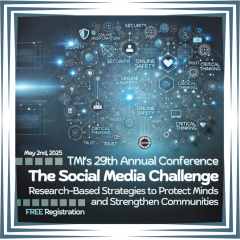Balanced Soft-skill Training
 Gloucestershire/Stuttgart, April 2006 - (by Kirsten Seegmüller) Soft skills cannot be fully trained by elearning alone. The concept of Balance Learning combines self-paced training via the Internet or interactive DVDs and workshops. This integrated approach avoids training redundant content in elearning and classrooms. CHECKpoint eLearning spoke with Chris Horseman, Managing Director of the British company Balance Learning Ltd. about actual comprehension.
Gloucestershire/Stuttgart, April 2006 - (by Kirsten Seegmüller) Soft skills cannot be fully trained by elearning alone. The concept of Balance Learning combines self-paced training via the Internet or interactive DVDs and workshops. This integrated approach avoids training redundant content in elearning and classrooms. CHECKpoint eLearning spoke with Chris Horseman, Managing Director of the British company Balance Learning Ltd. about actual comprehension.
Mr Horseman, what is so new about your integrated approach?
Chris Horseman: We took the natural process of learning and designed our material around it. We provide three types of material: knowledge and context learning, practical skills, and reinforcement of the two at the workplace. Usually off-the-shelf products and workshops cover the same content. In our workshops, we build on the knowledge gained from the online or interactive DVD.
How do you combine individualized training with time and budget pressures?
Chris Horseman: Our pre-tests allow a certain degree of self-customizing. Participants also fill out surveys from which trainers can see the individual needs of their target group and prepare their workshops accordingly. In some cases the workshop content can even be tuned to individuals and their workplace environment.
Soft skills via elearning - isn't that a basic contradiction?
Chris Horseman: I fully agree. If you want to train assertiveness to shy people who cannot stand up for themselves, eLearning alone is unlikely to be effective. But if you teach them the basics online and then put them in a classroom where they can practice their behaviour and get feedback from others, they will be more likely to actually try out and use their new skills.
Which part can be learned online, and which part can only be done in workshops?
Chris Horseman: Let's take an example: When you acquire presentation skills, the DVD would teach people the importance of tailoring their presentation to the audience. It will show examples of different presentation styles, visualization aids, and logistics. But in the classroom, they will have to actually stand up and do it.
But can you really turn a shy person into a good presenter?
Chris Horseman: No, but I think you can turn anybody into a better presenter. If they have some experience and can prepare properly in advance, they can do a good job.
Fine: Presentation skills can be learned, but can you make a leader out of somebody who is not a natural leader?
Chris Horseman: To a degree you can help people understand different techniques in different situations, improve their competence, and maximize their potential. Some time ago I employed a top technical expert in specific computer languages and programming. He was one of the best people worldwide and thus the appropriate person to present to Senior Managers. But his communication skills were not those of an ideal presenter. In IT, industry leaders are often chosen by their technical capability, not by their leadership aptitude.
Do you see significant differences between leadership in government and companies?
Chris Horseman: Governments and some large companies have one thing in common: promotion depends on the amount of time you have been there and the number of exams you have passed. So people in leadership positions were often selected for their leadership aptitude. But of course companies change faster than governments. There has been a big change in entrepreneurial style in Britain and the USA - more delegated responsibility has emerged there. But German companies seem to follow more rigid processes, similar to government structures.
What is Germany like when it comes to acquiring soft skills?
Chris Horseman: It has been much more difficult to sell soft skills training in Germany than elsewhere. The concept of assertiveness, for example, was difficult to explain because traditionally people are expected and are used to operating in a very precise manner. When you look at the German content market, the bulk is technical: computer training rather than skills relating to interpersonal communication.
Which soft skills will become crucial within the next years?
Chris Horseman: Until today, most managers have only attended a single course on leadership or a single course for conflict management. In the future, we need a strong foundation in an entire management curriculum that includes leadership, coaching, handling discipline and grievances, as well as performance and conflict management - we call it manager induction. This will give new managers a strong, consistent, and especially holistic grounding that would make them perform much more effectively.










